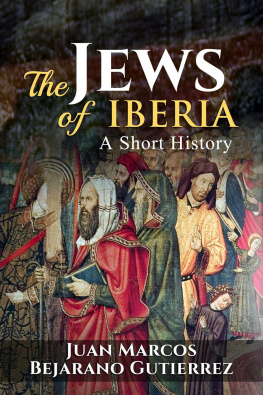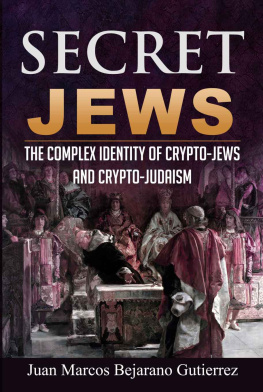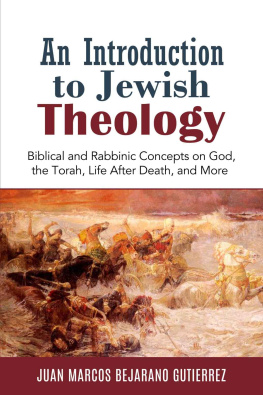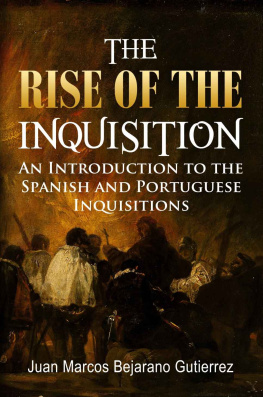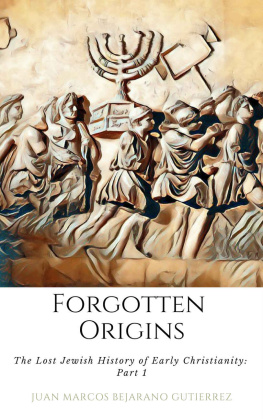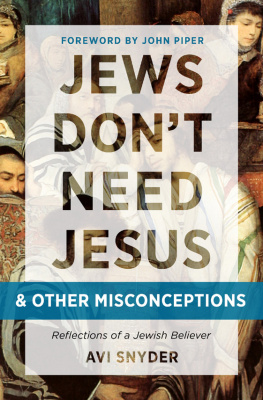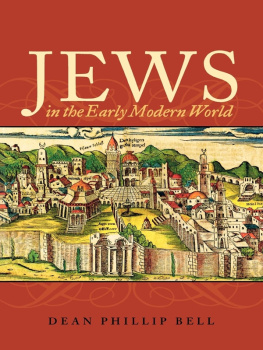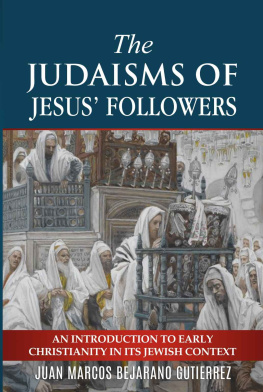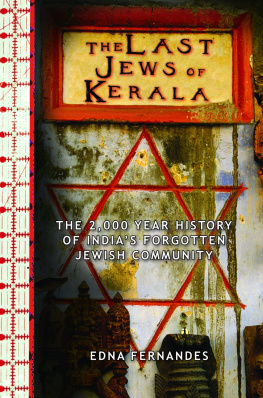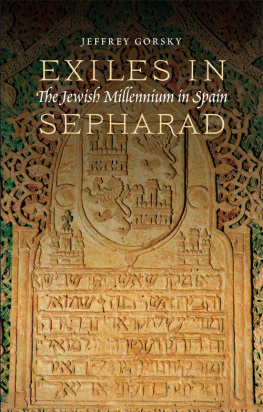The Jews of Iberia
A short history
Juan Marcos Bejarano Gutierrez
Yaron Publishing
Copyright 2017 by Juan Marcos Bejarano Gutierrez.
All rights reserved. No part of this publication may be reproduced, distributed or transmitted in any form or by any means, including photocopying, recording, or other electronic or mechanical methods, without the prior written permission of the publisher, except in the case of brief quotations embodied in critical reviews and certain other noncommercial uses permitted by copyright law. For permission requests, write to the publisher, addressed Attention: Permissions Coordinator, at the address below.
Juan Marcos Bejarano Gutierrez/Yaron Publishing
701 Forest Park Place
Grand Prairie, Tx 75052
www.cryptojewisheducation.com
Book Layout 2017 BookDesignTemplates.com
Ordering Information:
Quantity sales. Special discounts are available on quantity purchases by corporations, associations, and others. For details, contact the Special Sales Department at the address above.
The Jews of Iberia/ Juan Marcos Bejarano Gutierrez. 1st ed.
ISBN 978-1537118147
Contents
To Conversos of the Past who were lost to the Jewish Community and to those struggling to return.
preface
The rise of the Conversos can only be understood in the context of the broader Jewish experience in Spain. I recently published the title Secret Jews: The Complex Identity of Crypto-Jews and Crypto-Judaism . This work was based on my final doctoral project at the Spertus Institute of Jewish Studies. It discusses both the history of Jews forced to convert to Christianity in Spain and Portugal as well as many of the social and theological challenges they confronted in Jewish and Christian communities.
I realize, however, that many people simply do not have the time to read a more comprehensive study on Conversos or on Sephardic history in general. My goal has been to write short works that allow the reader to learn about a topic without feeling overwhelmed. This book will hopefully provide the interested reader with a more digestible review of both Sephardic and Converso history. This book includes an overview of Jewish life in the Iberian Peninsula from its early days through the Expulsion. It does not address the theological or halakhic issues that many Conversos faced when they returned to Jewish communities. I hope, however, that the information included will spur the reader to continue their study of this fascinating subject.
Juan Marcos Bejarano Gutierrez
.
chapter 1
The Jews of the Iberian Peninsula
T he history of Jews in Spain and Portugal spans more than a thousand years. By most measures, it is even longer than the large-scale settlement of Jews in the land of Israel which was interrupted several times in Jewish history. Legends ascribe the arrival of the earliest settlers to the days of the biblical prophet Obadiah, but archeologically speaking, the first record of Jews is much later.
An early testament to the presence of Jews in the Iberian Peninsula is a decree issued by the Council of Elvira in southern Spain circa 304 CE.The Christian Council was comprised of bishops and presbyters from the cities of Crdoba, Seville, Toledo, Saragossa, and various other towns populated by Jews.The council prohibited Christians from living or eating with Jews. It also barred Christians from allowing their daughters to marry Jews or pagans. Christians were also forbidden from asking Jews to bless their fields. The penalty for failing to comply with these rules was excommunication.
The Visigoths gained control over most of the Iberian Peninsula in the waning years of the Western Roman Empire. The Visigoths were initially pagans. They converted to Arian Christianity and eventually to Orthodox Christianity. After 586 CE, Visigoth rule was characterized by anti-Jewish legislation. [1] In 551 CE, Athangild, one of many aspirants vying for the Visigoth throne requested support from the Eastern Roman Empire (Byzantine). The Byzantines supported his claim and also seized Crdoba, Granada, Cartagena, and the Balearic Islands in the process. [2] Furthermore, Byzantine anti-Judaism influenced the entire Visigoth kingdom. Byzantine rule in southern Spain ended in 625 CE, but its influence over the Visigoths persisted.

The Conversion of Reccared to Catholicism by Antonio Muoz Degrain
A T THE THIRD ECCLESIASTICAL Council of Toledo in 589, King Reccared prohibited Jews from acquiring or owning Christian slaves. They were also barred from public office and banned from having intercourse with Christian women. The circumcision of either a slave or a Christian was punished with confiscation of property. The council also stipulated that children born of the intermarriage between a Jew and a Christian were to be baptized and reared as Christians. However, King Reccared was only partially successful in enforcing these laws. King Reccared resisted the attempts by Jews to rescind these decrees and earned praise from Pope Gregory I (540-604 CE) for his steadfastness. [3]
Successive church councils in Toledo were focused on preventing Jewish converts to Christianity from reverting to Judaism. Many of these Jews appear to have converted under duress and the weight of increasing anti-Jewish measures. Jewish converts were prohibited from associating with openly practicing Jews. The children of those suspected to have relapsed were seized and transferred to Christian families. Recent converts were also bound to sign a formal declaration that they had abandoned Jewish rituals and observances. [4]
In 613, King Sisebut demanded that all Jews residing in his domains convert. He commanded that all Jews were to either submit to baptism or leave within a year. According to Catholic sources, ninety thousand Jews converted to Christianity. [5] The Islamic chronicler, Al-Razi, contends that all Iberian Jews converted to Christianity though later Church councils confirmed the continued existence of non-converted Jews in Spain. [6]
The forced conversions were severely criticized by the leading Spanish theologian of the day, St. Isidore of Seville. Despite his condemnation, during the fourth Toledo Council convened in 633, St. Isidore insisted that forced converts live a Christian life lest the Christian faith be considered worthless. [7] The fourth Toledo Council noted the ongoing Jewish practices of forced converts who were treated as blasphemers. [8] They lost their children and slaves if the latter had been circumcised. [9] Previously adopted laws, including forbidding contact between Jewish converts and unconverted Jews, were reiterated. Also, a convert to Christianity, whose sincerity was dubious, was excluded from giving testimony in a court of law. [10]
Following the death of King Sisebut in 621 CE, King Swinthila (circa 621-631) assumed the throne. According to Al-Razi, Jews from other territories settled in Spain during his reign. Swinthila was forced to relinquish his throne and was succeeded by Sisenand. King Sisenand ruled briefly from 631636 CE. [11] Under Sisenands reign, children of converted Jews were taken from their parents custody and given to Christians or to monasteries to ensure they received a proper Christian education. Forced converts, known to practice Jewish ceremonies, were given away as slaves. [12] King Sisenand was succeeded by King Chintila, who reigned from 636640 CE.
Next page
